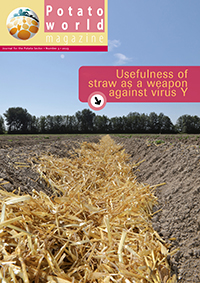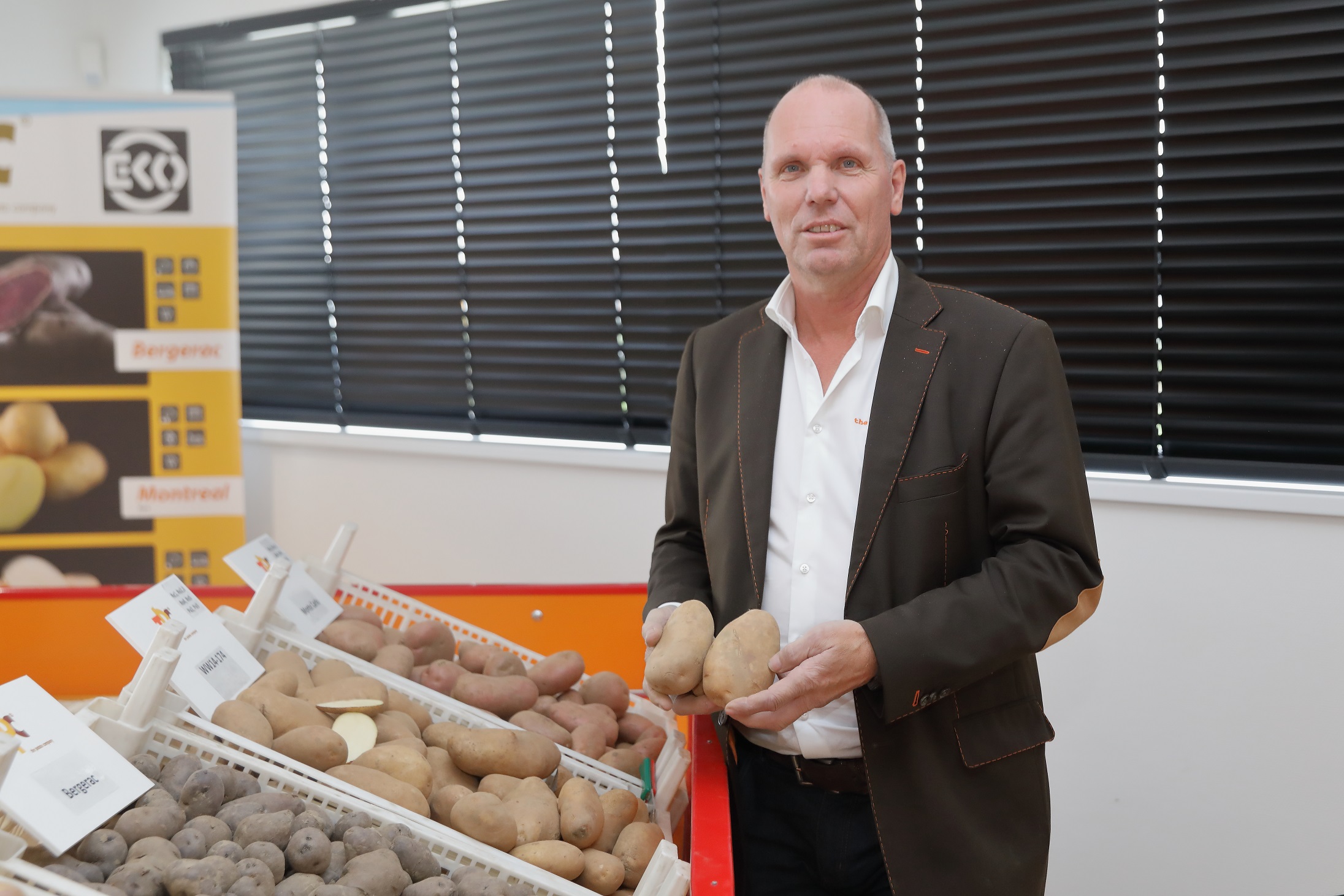Already a subscriber? Activate your premium account

Potatoworld Magazine

During the Potato Variety Days 2021, we asked participating breeding companies about the key focus of their breeders in their search for new varieties. In this blog post you may read the answer given by Jos Bus, Product/Research manager of TPC, Emmeloord (NL):
The content of this blog originates from the article on the Potato Variety Days 2021 published in PotatoWorld magazine 2022/01.
By Zindziwe Janse, Jaap Delleman and Leo Hanse.
‘That’s what we’ve been focusing on in our breeding work for many years now’, Jos Bus points to the top right corner of one of the variety name plates next to the boxes with potato varieties that TPC has placed prominently in the spotlight. It lists an impressive number of nematode resistances that would be the envy of many breeding stations.
The focus on resistances at TPC is not only limited to nematodes, but is also complemented by those for wart disease, Phytophthora and virus Y, Bus continues. That changes over time, he says. ‘For example, years ago there was hardly any demand for something like virus resistance, and now it’s the number one request. Actually, the same thing happened with the demand for Phytophthora resistance. For a long time, everybody thought: you can’t stop spraying, because you always have to treat with something, don’t you? But then, in organic cultivation it’s not acceptable and that’s where the urgent request to cultivate varieties with resistance came from. In addition, there’s a great deal of pressure on the use of chemical crop protection agents in conventional cultivation, so Phytophthora resistance will also become more important there too. The same applies to other topics that customers bring up. We listen to them all and then decide whether it’s worth getting started with it ourselves. The best thing is when you can be ahead of the customers’ requirements. An example? Well, in the French-fry segment we’ve been testing seedlings for more than four years, storing them at lower temperatures while maintaining a good frying quality. So instead of storing at 7 degrees Celsius we stored at 6 degrees, with the aim of keeping germination under control for as long as possible with the least possible sprout inhibitor. We then stored the varieties at 4 degrees Celsius and saw that excellent frying results can be achieved with certain promising seedlings, in combination with processes such as reconditioning. If, with today’s problems, you can market such a seedling as a variety, you’ll be one step ahead of everyone. So focusing is not just about listening to the customer, but also looking ahead with an understanding of the sector. You ask me, how do you establish and maintain contact with your customers? That’s what we do on days like this. What I would like to add here is that like us, you can maximise the breeding work for characteristics such as disease resistance, but if you lack yield, you’re nowhere. So when you’re talking about the direction of the breeding work, this factor is always at the top of the customer’s wish list. That’s why it’s always a question of both resistance and yield, and we have a very promising example of that. It’s a new potato cyst nematode (AM) resistance, very suitable for the cultivation of chips with A, B, C, D, E and F resistance, so Rostochiensis 1 to 5 and Pallida 2 and 3. And all with a rating of 9. I’m talking about WW 14-174, a cross product from breeder Hans van den Oord. This WW 14-174 produces long oval tubers with light yellow flesh which makes it highly suitable for the fast food segment. This is also an example of a variety that can be stored at a lower temperature while maintaining its baking quality. You can tell by the frying score in the list, a good 2.0. We therefore consider this variety with all its promising characteristics as a serious competitor to the Innovator. Especially since its yield is at least 10 tons per hectare higher.’
Want to keep reading about the Potato Variety Days?
In the run-up to the event we published an e-book that you can download here!
Events
©2015 - 2024 Potatoworld | Webdesign and realisation COMMPRO